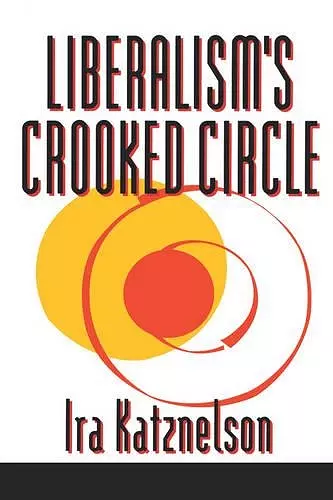Liberalism's Crooked Circle
Letters to Adam Michnik
Format:Paperback
Publisher:Princeton University Press
Published:1st Oct '98
Should be back in stock very soon

Liberalism's Crooked Circle is at once an intensely private and a brilliantly objective analysis of the questions that agonize our times... I know of no book closer to the core of our time, none that has moved and instructed me so deeply. -- Robert Heilbroner
Explores how the virtues of socialism, including its moral stand on social justice, can be related to liberalism while overcoming debilitating aspects of the socialist inheritance. This book asks whether liberalism can recognize, appreciate, and manage human difference.This book is a profoundly moving and analytically incisive attempt to shift the terms of discussion in American politics. It speaks to the intellectual and political weaknesses within the liberal tradition that have put the United States at the mercy of libertarian, authoritarian populist, nakedly racist, and traditionalist elitist versions of the right-wing; and it seeks to identify resources that can move the left away from the stunned intellectual incoherence with which it has met the death of Bolshevism. In Ira Katznelson's view, Americans are squandering a tremendous ethical and political opportunity to redefine and reorient the liberal tradition. In an opening essay and two remarkable letters addressed to Adam Michnik, who is arguably East Europe's emblematic democratic intellectual, Katznelson seeks to recover this possibility. By examining issues that once occupied Michnik's fellow dissidents in the Warsaw group known as the Crooked Circle, Katznelson brings a fresh realism to old ideals and posits a liberalism that "stares hard" at cruelty, suffering, coercion, and tyrannical abuses of state power. Like the members of Michnik's club, he recognizes that the circumference of liberalism's circle never runs smooth and that tolerance requires extremely difficult judgments. Katznelson's first letter explores how the virtues of socialism, including its moral stand on social justice, can be related to liberalism while overcoming debilitating aspects of the socialist inheritance. The second asks whether liberalism can recognize, appreciate, and manage human difference. Situated in the lineage of efforts by Richard Hofstadter, C. Wright Mills, and Lionel Trilling to "thicken" liberalism, these letters also draw on personal experience in the radical politics of the 1960s and in the dissident culture of East and Central Europe in the years immediately preceding communism's demise. Liberalism's Crooked Circle could help foster a substantive debate in the American elections of 1996 and determine the contents of that desperately needed discussion.
Winner of the 1997 Michael Harrington Award, Caucus for a New Political Science section of the American Political Science Association Winner of the 1996 Lionel Trilling Award, Columbia University "[A] thoughtful and eminently readable contribution to debates about the future of liberalism... [Katznelson] argues for a synthesis of the most progressive elements of political liberalism with the strengths of the socialist critique of capitalism."--William E. Scheuerman, Political Science Quarterly "Liberalism's Crooked Circleis an intellectually rich engagement with two large issues in contemporary liberalism... Historically grounded and sociologically realistic--it is a great success."--The Boston Review of Books "Thoughtful and eminently readable contribution to debates about the future of liberalism... Katznelson's argument is provocative."--Political Science Quarterly "Katznelson's prose style is as elegant as his political stance is sophisticated. This is a subtle, searching examination of liberalism's complicated relationship to concerns about class inequality and social difference."--Library Journal "[An] unusual and inventive work."--Foreign Affairs
ISBN: 9780691004471
Dimensions: unknown
Weight: 312g
212 pages